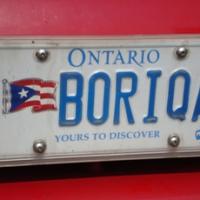Tips on remembering.
ca, kivuye
Ubutumwa 9
ururimi: English
mallen94 (Kwerekana umwidondoro) 16 Nyandagaro 2014 05:03:02
Also can someone clarify the meaning and usage of "Ĉu". Whenever I see it in a sentence like, Ĉu naŭ estas pli granda numero ol tri? I get what the basis of the question, but when I try to translate it into literal English, it just doesn't seem to work in my brain.
Dankon!
michaleo (Kwerekana umwidondoro) 16 Nyandagaro 2014 06:58:39
sergejm (Kwerekana umwidondoro) 16 Nyandagaro 2014 16:24:35
If you dictoinary translates kiom and kioma same, it is a wrong dictionary.
Kiom da etaĝoj havas via domo? Mia domo havas kvin etaĝojn.
How many floors has your house? My house has five floors.
Je kioma etaĝo vi vivas? Mi vivas je la unua etaĝo.
What floor do you live at? I live at the first floor.
But iom and ioma mean nearly the same:
Kiom da pomoj vi aĉetis?
How many apples do you buy?
Mi aĉetis iom da pomoj/iomajn pomojn.
I bought some apples.
Using iomajn you can indicate an accusative.
Ĉu begins questions, which does not begin with Ki… word.
sudanglo (Kwerekana umwidondoro) 17 Nyandagaro 2014 12:38:19
So I need some help/tips on remembering all the who, what, when, where and howsThe k- words don't have the same frequency of occurrence, some are much more common than others.
Kiu and Kio, are perhaps the most common. So master those first. Kio is like an o-word (thing word). Kiu rhymes with 'who'.
Do you find neniam (never) easy to remember? Link this with kiam (when).
Kie almost rhymes with 'where'.
Kiel, think of 'How the hell?'
Kiom - think of kiom kostas? (M for money)
Ĉu rhymes with 'do'. Ĉu vi fumas? - do you smoke?
Alkanadi (Kwerekana umwidondoro) 17 Nyandagaro 2014 13:35:36
Everyone struggles when memorizing strange words but here are some mnemonics that helped me.
Kia - Kia is a car company. Think of someone saying "What kind of car is it?" and someone answering "It is a Kia". Kia means "What kind" in Esperanto. Or remember this phrase "What kind of Kia is your Kia?" (there are different models). It helps that I drive a Kia and see the steering wheel every single day.
Kiu - You already know it is a question because it starts with K. The last sound of the word is U, which sounds like who?
It was overwhelming for me at first but now I am getting the hang of it.
erinja (Kwerekana umwidondoro) 18 Nyandagaro 2014 11:33:01
The yes or no format gives a statement of fact and adds "ĉu" to make it a yes or no question.
Statement of fact - You like dogs. - Vi ŝatas hundojn.
Question: Do you like dogs? Ĉu vi ŝatas hundojn?
In English we sometimes change the word order for these questions, but not in Esperanto.
You are going to New York. - Vi iras al Novjorko.
Are you going to New York? - Ĉu vi iras al Novjorko?
For selecting an answer:
Do you want bread or cake? - Ĉu vi volas panon aŭ kukon?
...it's the same statement of fact word order, just with ĉu.
You want bread or cake. Vi volas panon aŭ kukon.
The questions that start with "ĉu" in Esperanto usually start with "Do" or "Does" in English, or "Is" or "Are" (Are you coming? Is there a bus tomorrow? Do you know him? Does he come often?). Like I said, if you think about these types of questions in English, they are answered with yes or no ("Do you like it?" ) or they are asking you to choose an answer from a list ("Do you prefer chocolate or vanilla?" )
BoriQa (Kwerekana umwidondoro) 18 Nyandagaro 2014 11:48:12
When used as "how many", the answer to a Kiom question has to be a cardinal number: unu, du, tri...
Kioma is similar to "how many", where the answer still has to be a number, but this time an ordinal number: unua, dua, tria...
Kiom da horoj vi naĝis? >> Tri horoj.
Kioma horo estas? >> Tria horoj.
sergejm:Ĉu begins questions, which does not begin with Ki… word.Ĉu is used for yes/no questions.
robbkvasnak (Kwerekana umwidondoro) 18 Nyandagaro 2014 13:36:19
kaŝperanto (Kwerekana umwidondoro) 18 Nyandagaro 2014 13:45:50
BoriQa's answer is great for explaining the difference between kiom and kioma.
As for Ĉu, just remember that you are learning a different language. There isn't ever going to be a 1-1 correspondence between languages, even for those descended from common language ancestors. That being said, it might be helpful to think of Ĉu as the phrase "Is it true that", but this is only an approximation in some contexts.





